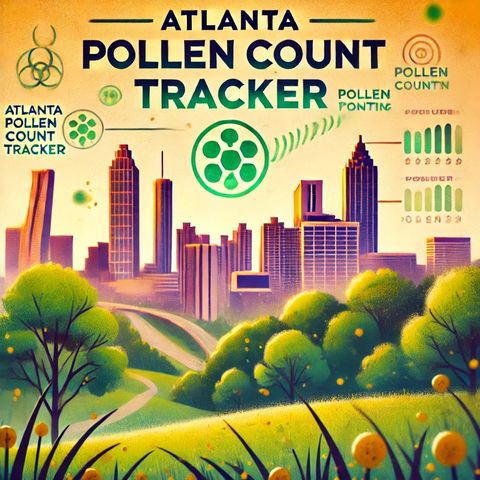Pollen Count for Atlanta, GA on 11-11-2024

Download and listen anywhere
Download your favorite episodes and enjoy them, wherever you are! Sign up or log in now to access offline listening.
Pollen Count for Atlanta, GA on 11-11-2024
This is an automatically generated transcript. Please note that complete accuracy is not guaranteed.
Description
On November 11, 2024, residents of Atlanta, Georgia, can expect generally low pollen levels, a welcome relief for allergy sufferers. During this time of the year, pollen levels typically wane...
show moreHistorically, autumn in Atlanta marks a transitional period where pollen levels drop after the intense spring and summer seasons dominated by tree and grass pollen. The cooler temperatures and increased rainfall often help to suppress airborne pollen. According to local meteorological data, the forecast for today suggests temperatures in the mid-60s with clear skies, a condition that could lead to slightly elevated levels of pollen compared to cooler, wetter days.
Grass pollen, which peaks in the late spring and summer, is typically low or nearly absent by November. Tree pollen from oak, pine, and birch, prevalent in the spring, has also decreased to negligible levels by this time. The primary concern remains weed pollen, particularly ragweed, which can linger into November. However, with the first frost often occurring around this time in Atlanta, ragweed pollen levels are expected to be low.
Mold spores are another potential allergen worth noting. They can thrive in decaying leaves and other organic matter typical of the autumn season. Moist conditions previously in the week could lead to heightened mold spore levels, but today's dry conditions will help mitigate their impact.
For those sensitive to pollen and mold spores, it is still advisable to take precautions, such as keeping windows closed and using air purifiers. Checking regular updates from local weather services or allergy forecasters can provide tailored advice on managing allergies effectively.
As always, other individual factors, such as proximity to water sources or construction, can influence personal pollen exposure. People with severe allergies should consult local resources for detailed, street-specific forecasts and consider wearing masks or taking antihistamines as desired.
In conclusion, the pollen count and levels in Atlanta are anticipated to be low today, providing some relief to the populace. Nonetheless, continued vigilance and preparation can help manage any minor allergy symptoms that might arise due to the persistent presence of ragweed and mold at this time of year.
Information
| Author | QP-5 |
| Organization | William Corbin |
| Website | - |
| Tags |
Copyright 2024 - Spreaker Inc. an iHeartMedia Company
